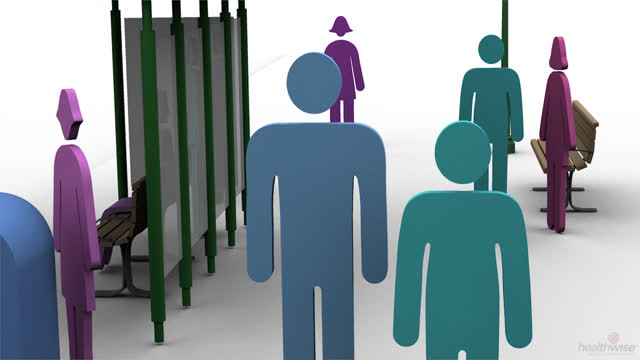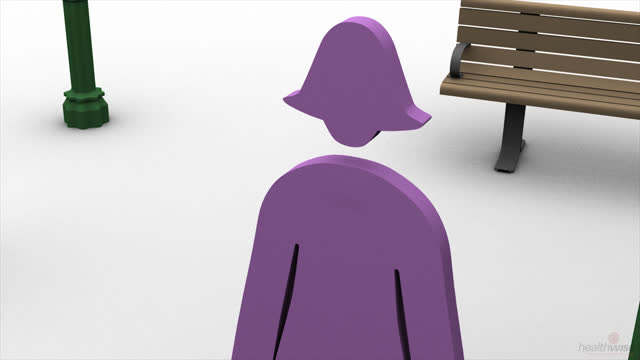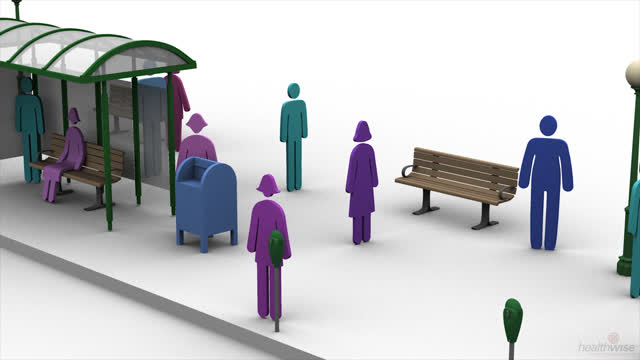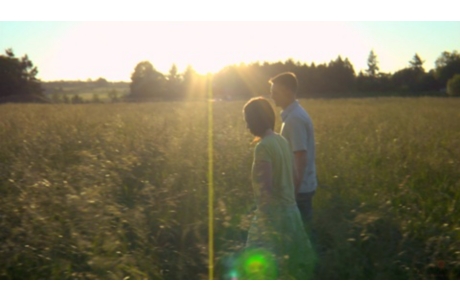Depression in Older Adults
Topic Overview
What is depression in older adults?
Depression is an illness that causes you to feel sad or hopeless much of the time. It is different from normal feelings of sadness, grief, or low energy.
Some people think that depression is normal with age. But it’s not. Older adults may go through major life changes or challenges that trigger depression. Such things as losing a spouse, living with a long-term health problem, or leaving a home you’ve lived in for many years are more common among older adults than others.
Like others who experience a life change, older adults may feel sad and may grieve and recover, or they may develop depression.
Some older adults are more likely to be depressed than others. Those who are more likely include:
- Older women.
- Those who are not married or who have lost their partners.
- Those who don’t have friends or family who can support them.
- Those who have had a medical problem such as a heart attack, stroke, or broken hip or who have chronic pain.
- Those who drink too much alcohol.
Why is depression a concern in older adults?
In older adults, untreated depression can last for years. It can lead to or make worse other problems in physical and mental health and in relationships with others. It also makes suicide more likely. Older Americans have the highest suicide rate of any age group, and depression is often linked to the suicide. Older men have the highest rate of suicide of any group.
Treatment can help depression and help you enjoy your life more. It also makes suicide less likely and may help older adults deal better with long-term health problems.
Do older adults have different symptoms than others who have depression?
Common symptoms of depression, such as sadness and loss of interest, occur in older adults just as they do in younger adults. But older adults also may:
- Feel confused or forgetful.
- Stop seeing friends and doing things.
- Have a hard time sleeping.
- Not feel like eating.
How is depression diagnosed?
Depression often is missed in older adults.
- People may think that sadness or depression is part of aging, so they don’t take it seriously.
- The symptoms of depression in older adults are sometimes like symptoms of other diseases, so depression may not be recognized. For example, a family member or doctor could mistake forgetting things as a symptom of dementia rather than depression. But people can have both.
- Many older adults take many medicines, and certain medicines may cause depression.
- Older adults may not seek help for depression, because they sometimes consider it a character flaw or weakness. They may blame themselves for the problem or be too embarrassed to seek help. They may not admit to feeling sad.
- The cost of doctor visits and treatment can prevent older adults from seeking help for depression.
If your doctor thinks you are depressed, he or she will ask you questions about your health and feelings. This is called a mental health assessment. Your doctor also may:
- Do a physical exam.
- Do tests to make certain your depression is not caused by another medical problem, such as a stroke, dementia, an underactive thyroid (hypothyroidism), or vitamin B12 deficiency anemia.
- Ask questions to see if you are at risk for suicide.
If you think you have depression, read this information or take this short quiz to check your symptoms.
How is depression treated in older adults?
As in younger adults, depression in older adults is treated with medicine, counseling, therapy, or a combination. Treatment usually works, and treatment for depression also may help other medical problems that older adults have. Older adults may benefit from early, continuing, and long-term treatment.
Older adults may have special concerns when using medicine.
- Some of the medicines used for depression may not be good choices because they may interact with medicine being taken for other health problems.
- The side effects of medicines may be more severe.
- Some antidepressants may take longer to start working in older adults than they do in younger adults.
- Older adults may need medicine for a longer amount of time than younger adults.
Many older adults don’t take all the medicines they need for depression. A caregiver or family member may need to help the person remember to take the medicines.
Depression often occurs with dementia, which is a loss of mental skills that affects daily life. Medicines for depression may help older adults with dementia.
What can an older adult do about depression?
Older adults can be aware of how they are changing as they age and keep a healthy attitude. Remember that getting older is a natural part of life. If you take good care of your body and learn positive ways to deal with stress, you can slow down or even prevent problems that often come with getting older.
One of the best things you can do for your health and to prevent depression is to be active. Several studies suggest that walking with others and doing other forms of exercise reduce symptoms in older adults. It may help prevent depression and help prevent it from coming back (relapse).
Your mental and emotional health also are important. Stay in touch with friends, family, and the community. If you remain close to others, you are more likely to feel better. Protect or improve your memory and mental sharpness by keeping your brain active through learning, doing crossword puzzles, or playing cards or strategy games.
Many people look back at their lives as they get older. You may feel you have lived a meaningful and good life. On the other hand, you may struggle with this and wonder if you made the most out of your life.
If you are not happy about how you’ve lived your life, think about talking to a friend, doctor, or counselor about it.
For more information on aging and its changes, see the topic Healthy Aging.
Health Tools
Health Tools help you make wise health decisions or take action to improve your health.
Current as of: May 28, 2019
Author: Healthwise Staff
Medical Review:Kathleen Romito, MD – Family Medicine & Lisa S. Weinstock, MD – Psychiatry
Topic Contents
This information does not replace the advice of a doctor. Healthwise, Incorporated, disclaims any warranty or liability for your use of this information. Your use of this information means that you agree to the Terms of Use. Learn how we develop our content.






